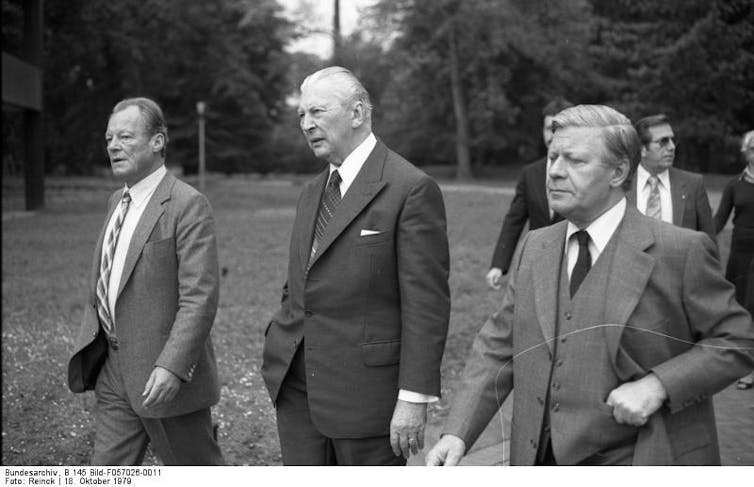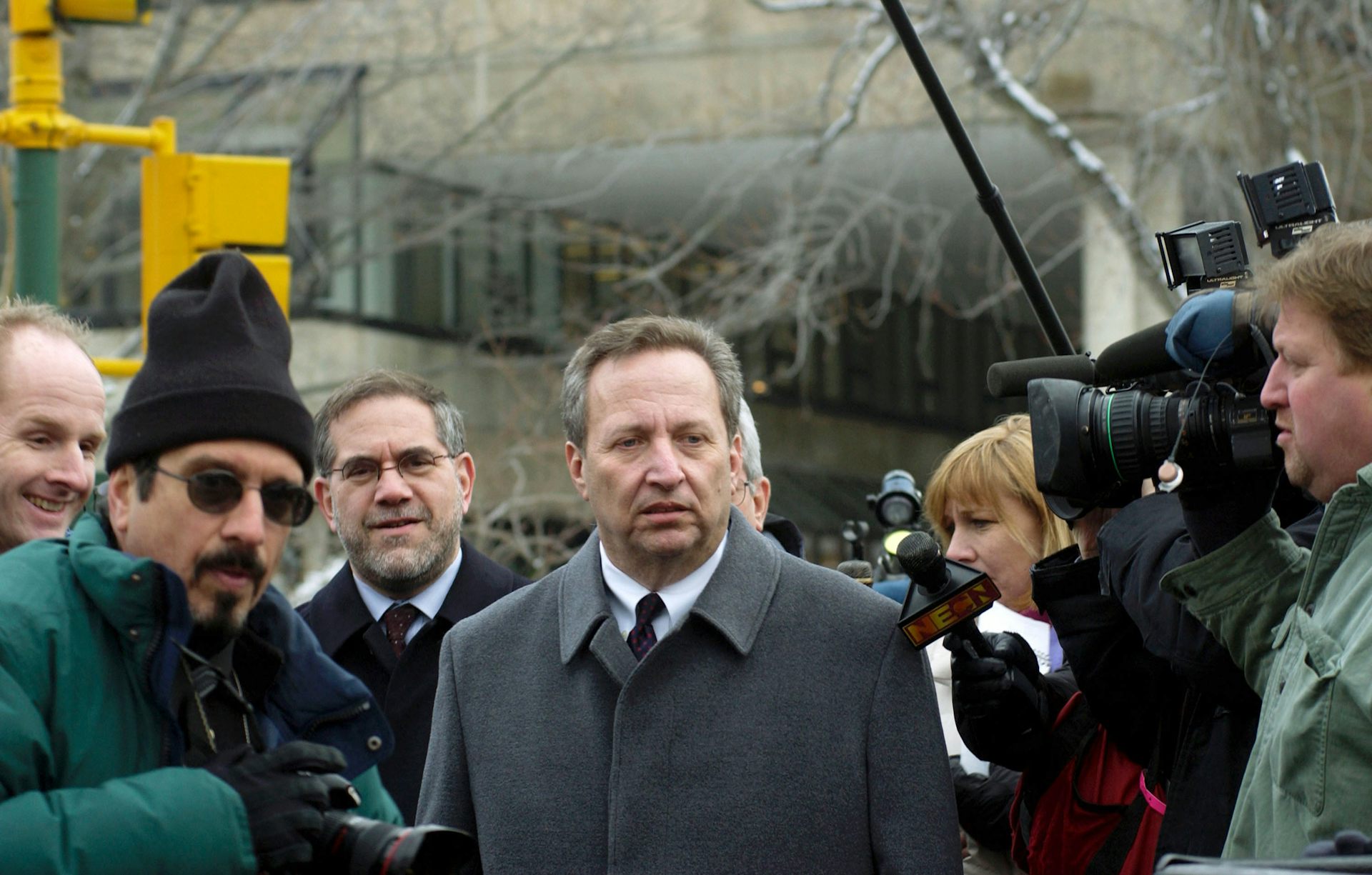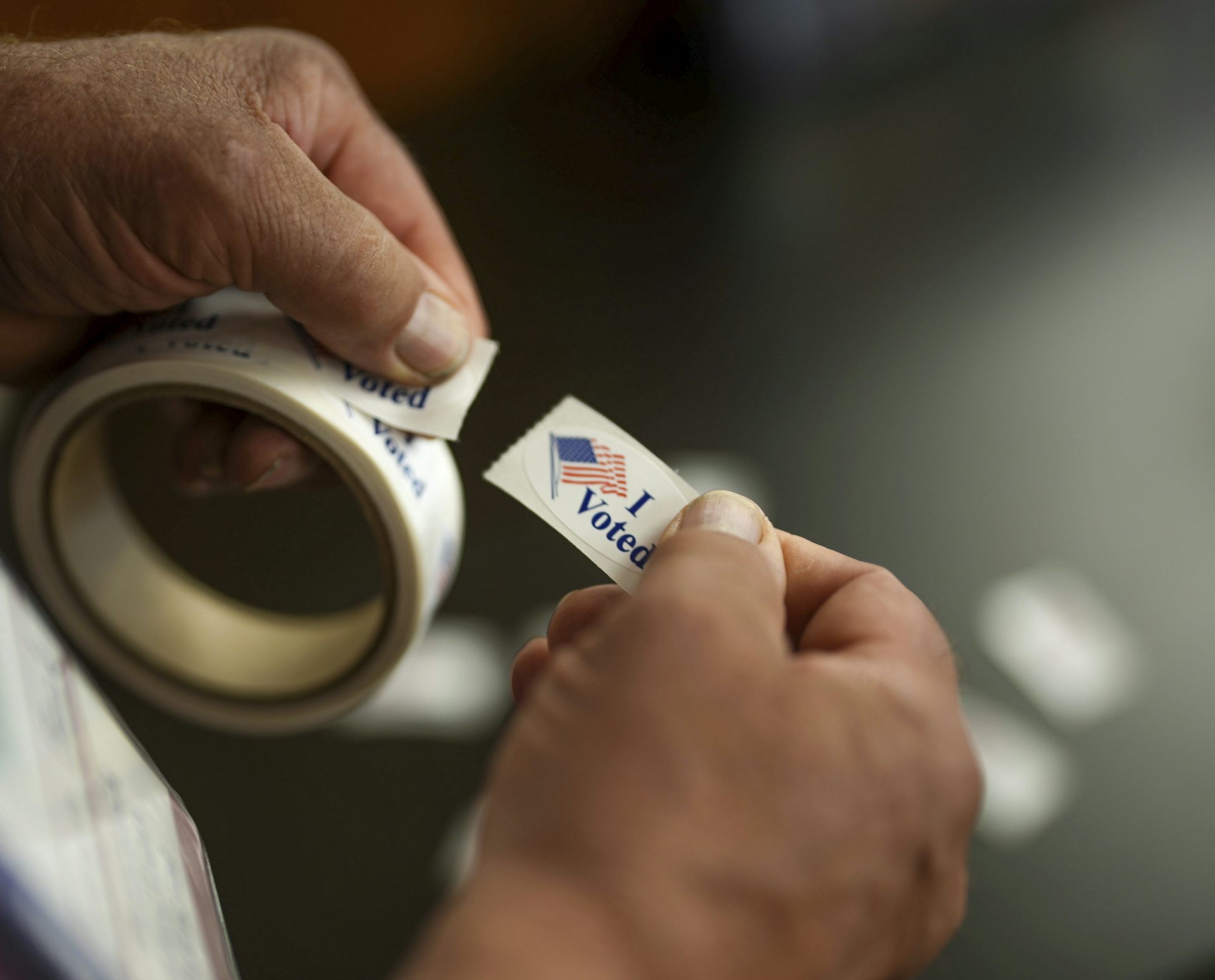German 'grand coalition' could strengthen right-wing extremism
Over three months since Germans voted in national elections, preliminary talks are due to start Jan. 7 on forming a coalition government. What has taken so long?
In today’s highly polarized political atmosphere, Americans may find themselves longing for increased bipartisanship. Wouldn’t greater cooperation from politicians improve our political situation or at least civilize political debate? What’s happening in Germany, however, should make them aware of some of the pitfalls of cooperating across the political aisle.
Germany will have taken a record 100 days to start preliminary talks Jan. 3 about exploratory talks Jan. 7 on whether to renew their “grand coalition” between the major parties on the center-left (the Social Democrats or SPD) and the center-right (Angela Merkel’s Christian Democrats or CDU/CSU).
While in Germany to observe the national election in September, I saw little enthusiasm for this governing arrangement. The subsequent long hesitation of the main political parties reveals their trepidation.
With 399 of the 709 seats in the Bundestag, a grand coalition may be able to pass any legislation it can agree on, but this is unlikely to help Germany address one of its major problems: the rise of a new right-wing, anti-immigrant party, the Alternative for Germany, or AfD.
A positive experience in the 1960s
In the first 50 years of the Federal Republic, West Germany experienced only one grand coalition, which lasted only three years.
Major parties choose to govern together for a variety of reasons. In some cases, there are significant political challenges that can only be addressed when actors across the political spectrum work together.
Germany’s earlier grand coalition – in power from 1966 to 1969 – came into being as a result of the first economic crisis of the postwar years and fears of an “economic collapse.”

The ruling Christian Democrats wanted to respond to this situation by raising taxes. Their coalition partners, the market-oriented Freedom Democratic Party or FDP, refused to agree to this move and resigned. The Christian Democrats then joined with the left-wing SPD in a grand coalition and worked together to pass policies that brought Germany out of recession. They also found common ground on other policies such as pension reform and greater support for higher education.
21st-century difficulties
Germany’s grand coalitions of the 21st century – and this year’s would be the third after the first between 2005 and 2009 and the second from 2013 to 2017 – have been another matter entirely.
Following the Sept. 24 elections, seven parties sit in the German Bundestag, more than any other year since 1949.
In addition to the CDU/CSU (the sister Christian Democratic parties count separately and must both agree to any potential governing coalition), the German parliament now includes the Social Democrats, the Freedom Democrats, the Greens, the Left Party (the party that emerged from the remains of the East German Communist Party) and the nationalist AfD.
The Left Party and the AfD are relatively young, both having been created in the 21st century, and are considered to be beyond the pale for coalition formation at the national level because of their extremism.
The problem is that the fragmentation of the party system means that neither of the “standard” coalition arrangements of right-leaning CDU/CSU-FDP or left-leaning SPD-Green has enough seats to form a government. The two major parties, therefore, have been forced into partnership not because of a shared bipartisan vision, but because of a lack of other alternatives.
Initially, however, after the September elections, the SPD declined to join a potential government. This was because many Social Democratic leaders believe that the main reason for their party having their worst election result since 1949 is that they were the junior partner in a grand coalition for the past four years. How can they claim, the argument goes, that they represent an alternative to the CDU/CSU when they have always voted to support the government? The party, in other words, needs time to re-establish itself as having a vision distinct from that of the Christian Democrats.
What then ensued was a rather unusual proposal for what was dubbed the “Jamaica coalition,” because of its color scheme of black (for the CDU/CSU), yellow (for the FDP) and green (for the Greens). But these negotiations broke down when the parties failed to reach a compromise on the very controversial issue of family reunification of refugees. At that point, Germany’s federal president publicly pressured the SPD to reconsider.
What to do about the extremist AfD?
The Christian Democrats and Social Democrats are far apart on many issues.
The SPD would like to do away with private health insurance; the CDU adamantly disagrees. The SPD wants to allow federal investment in schools, but that policy is opposed by the CDU since it would require lifting a ban on national interference in education, a policy area reserved for the states.
The parties do have common ground on some issues such as tax cuts for the lower- and middle-income brackets. Both also want to do away with the “Solidarzuschlag” – a special tax to support former East Germany – though they have different ideas about how to do so. And they might even find a compromise on the tricky issue of family reunification for refugees by agreeing initially to admit only those family members in most danger.
What Christian Democrats and Social Democrats definitely share, however, is the goal of limiting the power of the nationalist AfD.
Indeed, the SPD’s initial reluctance to join the governing coalition was also driven by their desire to make sure that the AfD – now the third largest party in parliament – not be able to claim the mantle of parliamentary opposition.
The German Bundestag does not have an official leader of the opposition, but the largest opposition party does have the right to chair the budget committee and to respond first to any government statements, thus ensuring it greater publicity and prestige. This role may help establish the AfD as a legitimate parliamentary actor.
No other options
The lack of other governing options shows how desperate the situation is.
Opinion polls show that calling new elections would either return the same results as on Sept. 24 or might even put the AfD in a stronger position.
On the other hand, a minority right-leaning government with just the CDU-CSU in power would be worryingly reminiscent of the unstable Weimar Republic of the 1930s that led to Hitler and the Nazis taking power. It would also probably have to rely on the AfD for support in passing legislation, thereby further legitimizing the party.
The bottom line is that the German parties are stuck in a bind because there is no guarantee that a grand coalition will constrain the power of the AfD.
With both major parties in the government, both will be targets of voter frustration. In particular, almost any policies the government passes to integrate hundreds of thousands of refugees are likely to lead to some voter pushback.
Voters worried about the refugee issue were already likely to turn to the AfD. With the major parties governing together, however, the AfD will have even more impact as the leading force of the opposition. As the major parties begin exploratory talks on Jan. 7, they face the continuing dilemma of how to constrain the power of the AfD.
Sarah Elise Wiliarty receives funding from Wesleyan University, International Association for the Study of German Politics, German Academic Exchange Service.
Read These Next
Tiny recording backpacks reveal bats’ surprising hunting strategy
By listening in on their nightly hunts, scientists discovered that small, fringe-lipped bats are unexpectedly…
Former Harvard president Summers’ soft landing after Epstein revelations is case study of economics’
Despite repeated calls for the university to revoke his tenure, the economist held onto his teaching…
Will AI accelerate or undermine the way humans have always innovated?
An anthropologist’s new book lays out the formula for human innovation, from stone tools to supercomputers.…





